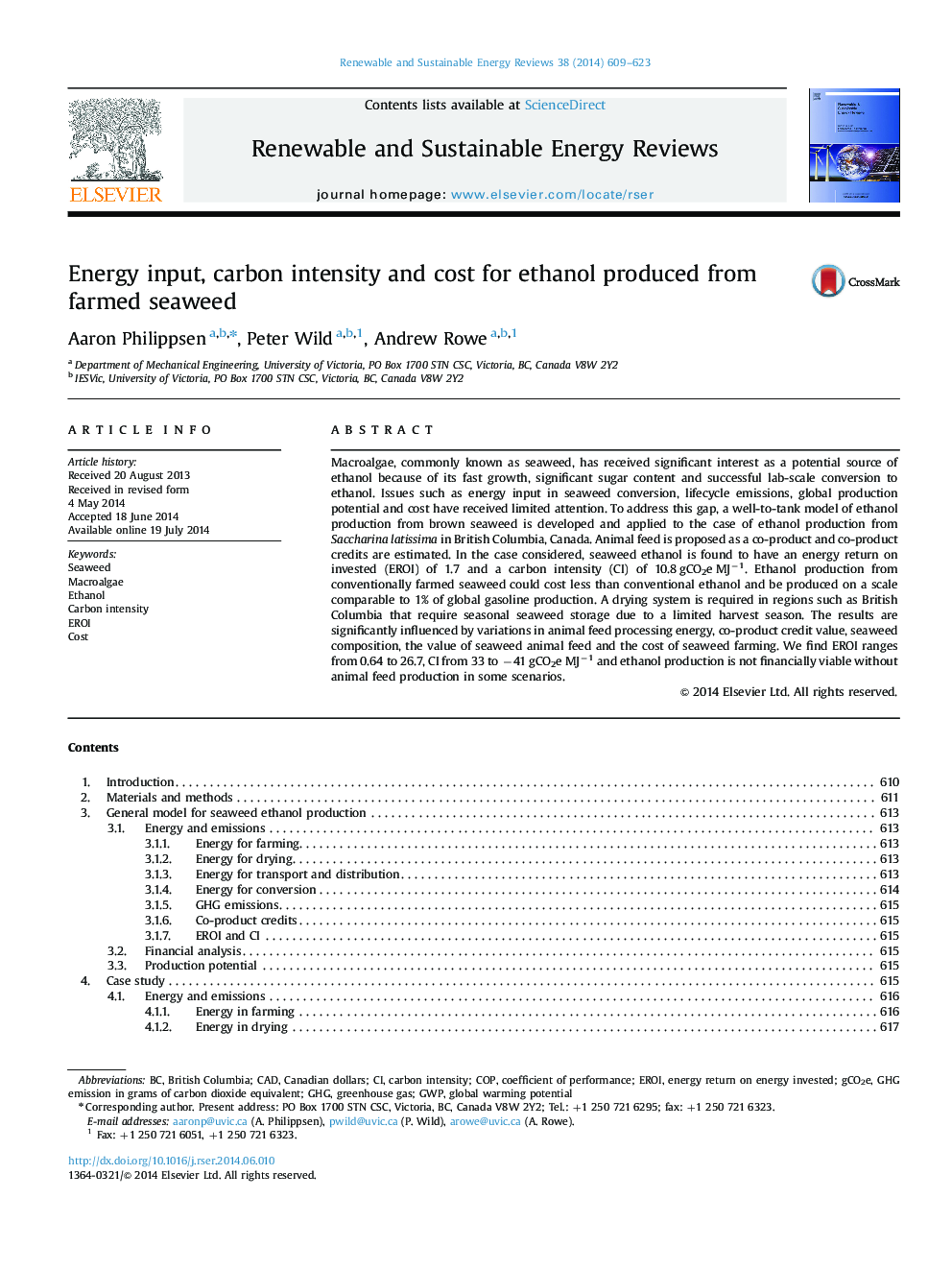| کد مقاله | کد نشریه | سال انتشار | مقاله انگلیسی | نسخه تمام متن |
|---|---|---|---|---|
| 8119777 | 1522347 | 2014 | 15 صفحه PDF | دانلود رایگان |
عنوان انگلیسی مقاله ISI
Energy input, carbon intensity and cost for ethanol produced from farmed seaweed
ترجمه فارسی عنوان
ورودی انرژی، شدت کربن و هزینه اتانول تولید شده از جلبک دریایی زراعی
دانلود مقاله + سفارش ترجمه
دانلود مقاله ISI انگلیسی
رایگان برای ایرانیان
کلمات کلیدی
MacroalgaeCOPGWPGHGEROI - HEROESEthanol - اتانولEnergy Return on Energy Invested - بازگشت انرژی به سرمایه گذاریBritish columbia - بریتیش کلمبیاSeaweed - جلبک دریاییCanadian dollars - دلار کاناداCarbon intensity - شدت کربنcoefficient of performance - ضریب عملکردCAD - طراحی به کمک رایانه یا کَدCost - هزینهglobal warming potential - پتانسیل گرمایش جهانیGreenhouse gas - گاز گلخانه ای
موضوعات مرتبط
مهندسی و علوم پایه
مهندسی انرژی
انرژی های تجدید پذیر، توسعه پایدار و محیط زیست
چکیده انگلیسی
Macroalgae, commonly known as seaweed, has received significant interest as a potential source of ethanol because of its fast growth, significant sugar content and successful lab-scale conversion to ethanol. Issues such as energy input in seaweed conversion, lifecycle emissions, global production potential and cost have received limited attention. To address this gap, a well-to-tank model of ethanol production from brown seaweed is developed and applied to the case of ethanol production from Saccharina latissima in British Columbia, Canada. Animal feed is proposed as a co-product and co-product credits are estimated. In the case considered, seaweed ethanol is found to have an energy return on invested (EROI) of 1.7 and a carbon intensity (CI) of 10.8 gCO2e MJâ1. Ethanol production from conventionally farmed seaweed could cost less than conventional ethanol and be produced on a scale comparable to 1% of global gasoline production. A drying system is required in regions such as British Columbia that require seasonal seaweed storage due to a limited harvest season. The results are significantly influenced by variations in animal feed processing energy, co-product credit value, seaweed composition, the value of seaweed animal feed and the cost of seaweed farming. We find EROI ranges from 0.64 to 26.7, CI from 33 to â41 gCO2e MJâ1 and ethanol production is not financially viable without animal feed production in some scenarios.
ناشر
Database: Elsevier - ScienceDirect (ساینس دایرکت)
Journal: Renewable and Sustainable Energy Reviews - Volume 38, October 2014, Pages 609-623
Journal: Renewable and Sustainable Energy Reviews - Volume 38, October 2014, Pages 609-623
نویسندگان
Aaron Philippsen, Peter Wild, Andrew Rowe,
